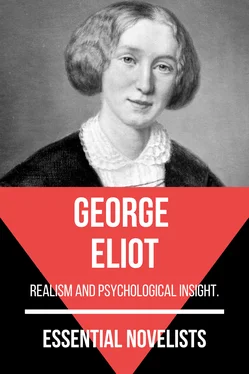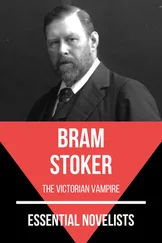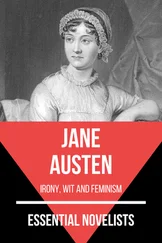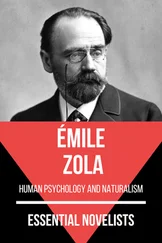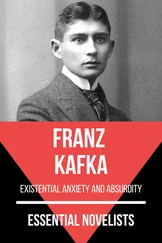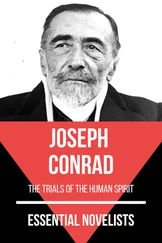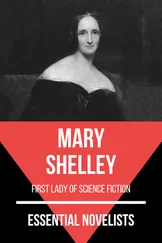"But you leave out the poems," said Dorothea. "I think they are wanted to complete the poet. I understand what you mean about knowledge passing into feeling, for that seems to be just what I experience. But I am sure I could never produce a poem."
"You are a poem—and that is to be the best part of a poet—what makes up the poet's consciousness in his best moods," said Will, showing such originality as we all share with the morning and the spring-time and other endless renewals.
"I am very glad to hear it," said Dorothea, laughing out her words in a bird-like modulation, and looking at Will with playful gratitude in her eyes. "What very kind things you say to me!"
"I wish I could ever do anything that would be what you call kind—that I could ever be of the slightest service to you. I fear I shall never have the opportunity." Will spoke with fervor.
"Oh yes," said Dorothea, cordially. "It will come; and I shall remember how well you wish me. I quite hoped that we should be friends when I first saw you—because of your relationship to Mr. Casaubon." There was a certain liquid brightness in her eyes, and Will was conscious that his own were obeying a law of nature and filling too. The allusion to Mr. Casaubon would have spoiled all if anything at that moment could have spoiled the subduing power, the sweet dignity, of her noble unsuspicious inexperience.
"And there is one thing even now that you can do," said Dorothea, rising and walking a little way under the strength of a recurring impulse. "Promise me that you will not again, to any one, speak of that subject—I mean about Mr. Casaubon's writings—I mean in that kind of way. It was I who led to it. It was my fault. But promise me."
She had returned from her brief pacing and stood opposite Will, looking gravely at him.
"Certainly, I will promise you," said Will, reddening however. If he never said a cutting word about Mr. Casaubon again and left off receiving favors from him, it would clearly be permissible to hate him the more. The poet must know how to hate, says Goethe; and Will was at least ready with that accomplishment. He said that he must go now without waiting for Mr. Casaubon, whom he would come to take leave of at the last moment. Dorothea gave him her hand, and they exchanged a simple "Good-by."
But going out of the porte cochere he met Mr. Casaubon, and that gentleman, expressing the best wishes for his cousin, politely waived the pleasure of any further leave-taking on the morrow, which would be sufficiently crowded with the preparations for departure.
"I have something to tell you about our cousin Mr. Ladislaw, which I think will heighten your opinion of him," said Dorothea to her husband in the course of the evening. She had mentioned immediately on his entering that Will had just gone away, and would come again, but Mr. Casaubon had said, "I met him outside, and we made our final adieux, I believe," saying this with the air and tone by which we imply that any subject, whether private or public, does not interest us enough to wish for a further remark upon it. So Dorothea had waited.
"What is that, my love?" said Mr Casaubon (he always said "my love" when his manner was the coldest).
"He has made up his mind to leave off wandering at once, and to give up his dependence on your generosity. He means soon to go back to England, and work his own way. I thought you would consider that a good sign," said Dorothea, with an appealing look into her husband's neutral face.
"Did he mention the precise order of occupation to which he would addict himself?"
"No. But he said that he felt the danger which lay for him in your generosity. Of course he will write to you about it. Do you not think better of him for his resolve?"
"I shall await his communication on the subject," said Mr. Casaubon.
"I told him I was sure that the thing you considered in all you did for him was his own welfare. I remembered your goodness in what you said about him when I first saw him at Lowick," said Dorothea, putting her hand on her husband's.
"I had a duty towards him," said Mr. Casaubon, laying his other hand on Dorothea's in conscientious acceptance of her caress, but with a glance which he could not hinder from being uneasy. "The young man, I confess, is not otherwise an object of interest to me, nor need we, I think, discuss his future course, which it is not ours to determine beyond the limits which I have sufficiently indicated." Dorothea did not mention Will again.
WAITING FOR DEATH.
––––––––
––––––––

"YOUR HORSES OF THE Sun," he said,
"And first-rate whip Apollo!
Whate'er they be, I'll eat my head,
But I will beat them hollow."
––––––––

FRED VINCY, WE HAVE seen, had a debt on his mind, and though no such immaterial burthen could depress that buoyant-hearted young gentleman for many hours together, there were circumstances connected with this debt which made the thought of it unusually importunate. The creditor was Mr. Bambridge, a horse-dealer of the neighborhood, whose company was much sought in Middlemarch by young men understood to be "addicted to pleasure." During the vacations Fred had naturally required more amusements than he had ready money for, and Mr. Bambridge had been accommodating enough not only to trust him for the hire of horses and the accidental expense of ruining a fine hunter, but also to make a small advance by which he might be able to meet some losses at billiards. The total debt was a hundred and sixty pounds. Bambridge was in no alarm about his money, being sure that young Vincy had backers; but he had required something to show for it, and Fred had at first given a bill with his own signature. Three months later he had renewed this bill with the signature of Caleb Garth. On both occasions Fred had felt confident that he should meet the bill himself, having ample funds at disposal in his own hopefulness. You will hardly demand that his confidence should have a basis in external facts; such confidence, we know, is something less coarse and materialistic: it is a comfortable disposition leading us to expect that the wisdom of providence or the folly of our friends, the mysteries of luck or the still greater mystery of our high individual value in the universe, will bring about agreeable issues, such as are consistent with our good taste in costume, and our general preference for the best style of thing. Fred felt sure that he should have a present from his uncle, that he should have a run of luck, that by dint of "swapping" he should gradually metamorphose a horse worth forty pounds into a horse that would fetch a hundred at any moment—"judgment" being always equivalent to an unspecified sum in hard cash. And in any case, even supposing negations which only a morbid distrust could imagine, Fred had always (at that time) his father's pocket as a last resource, so that his assets of hopefulness had a sort of gorgeous superfluity about them. Of what might be the capacity of his father's pocket, Fred had only a vague notion: was not trade elastic? And would not the deficiencies of one year be made up for by the surplus of another? The Vincys lived in an easy profuse way, not with any new ostentation, but according to the family habits and traditions, so that the children had no standard of economy, and the elder ones retained some of their infantine notion that their father might pay for anything if he would. Mr. Vincy himself had expensive Middlemarch habits—spent money on coursing, on his cellar, and on dinner-giving, while mamma had those running accounts with tradespeople, which give a cheerful sense of getting everything one wants without any question of payment. But it was in the nature of fathers, Fred knew, to bully one about expenses: there was always a little storm over his extravagance if he had to disclose a debt, and Fred disliked bad weather within doors. He was too filial to be disrespectful to his father, and he bore the thunder with the certainty that it was transient; but in the mean time it was disagreeable to see his mother cry, and also to be obliged to look sulky instead of having fun; for Fred was so good-tempered that if he looked glum under scolding, it was chiefly for propriety's sake. The easier course plainly, was to renew the bill with a friend's signature. Why not? With the superfluous securities of hope at his command, there was no reason why he should not have increased other people's liabilities to any extent, but for the fact that men whose names were good for anything were usually pessimists, indisposed to believe that the universal order of things would necessarily be agreeable to an agreeable young gentleman.
Читать дальше
